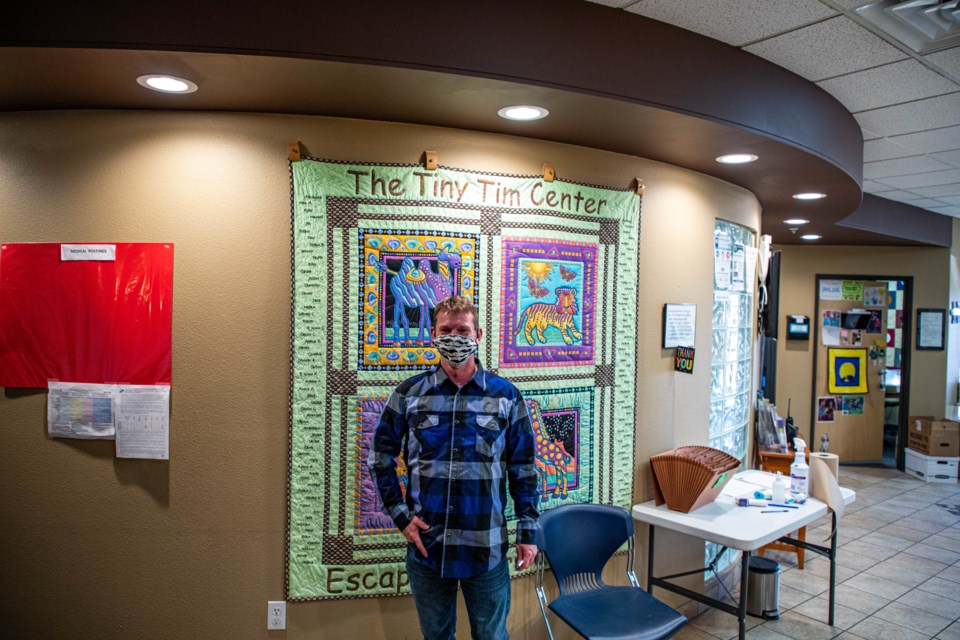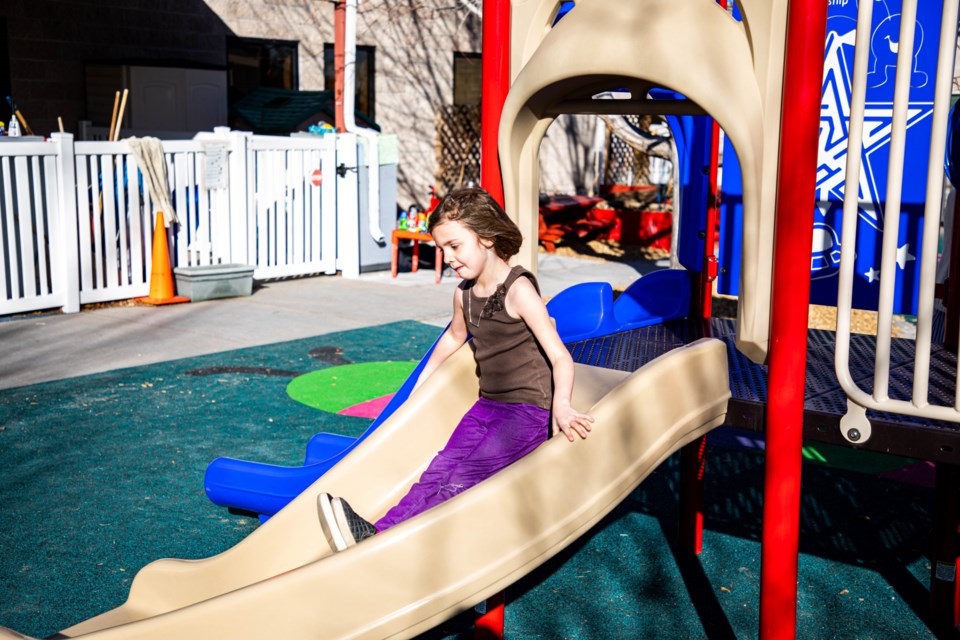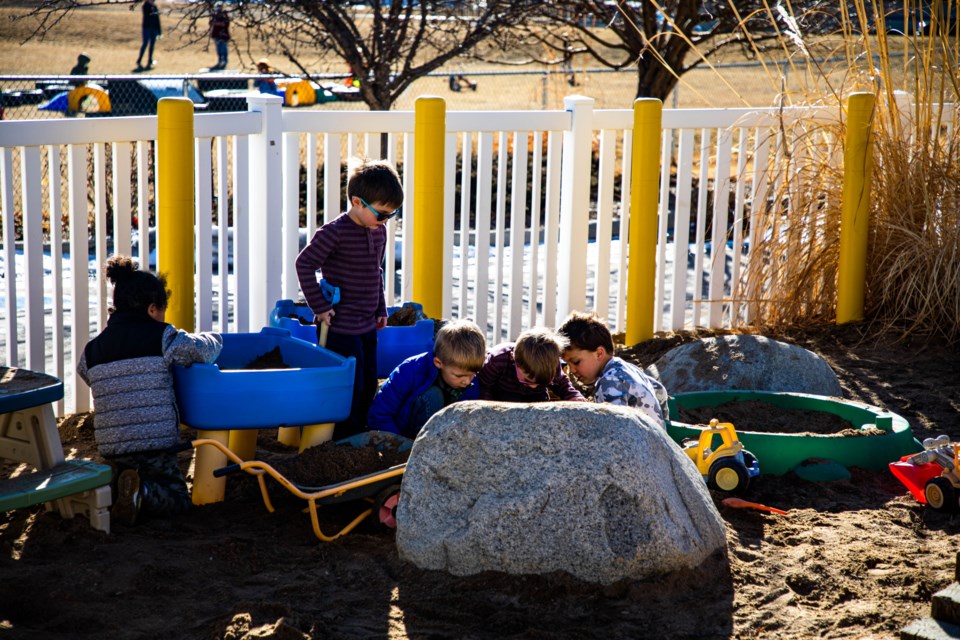Even before the onset of the coronavirus pandemic, Longmont was feeling the pinch when it came to early childhood care providers. After nearly a year, the pandemic has created more gaps in capacity and more barriers to care for parents who are struggling to balance the need to go back to work with the need to ensure their kids are taken care of safely.
However, even as it derailed plans for 2020, the pandemic also created the opportunity for the nonprofit Early Childhood Community Coalition to put a finer point on its mission to ensure all kids up to age 5 “are daily in safe, healthy, affordable, and developmentally appropriate settings.”
The coalition, formed in 2019, planned to hold an event in March to focus on how the impact of early childhood care goes beyond families to have implications for employers, whose workers need child care, and in turn the local economy. The event was nixed in response to the pandemic. In its place, the coalition held eight listening sessions to hear from parents, employers, providers and other stakeholders about their issues and concerns surrounding early childhood care.
Those sessions served as the foundation for a strategic plan that includes three goals the coalition aims to achieve this year: identifying and interpreting baseline data; determining how many children are and aren’t being served; and enhancing support for providers. Now it is seeking community members ranging from company executives to care providers to parents to join its effort to turn those goals into data and action.
The goals, as well as where the coalition plans to go with them from here, were presented to city council at its Feb. 16 study session.
The goal to establish baseline data is more important than ever in light of the pandemic, said Matt Eldred, executive director of TLC Learning Center and member of the Longmont Early Childhood Community Coalition who spoke to council last week.
 Executive Director Matt Eldred at TLC Learning Center in Longmont on Tuesday, Feb. 23, 2021. . By Matt Maenpaa / For the Leader
Executive Director Matt Eldred at TLC Learning Center in Longmont on Tuesday, Feb. 23, 2021. . By Matt Maenpaa / For the Leader“We knew pre-pandemic there was a shortage of quality care,” Eldred said. “Now that we’re in the pandemic, we’ve lost about 20% of licensed providers. Where we were serving 60% of the population before, now we’re only serving 40%.”
That growing scarcity has implications not just in living rooms but board rooms, he said. So much so that accessible and affordable child care is included in the initiatives of Advance Longmont 2.0, the reboot of the citywide economic development strategy approved by city council in 2019.
Advance Longmont 2.0 looked at a number of factors involved in a business’ decision to locate in the city, such as land development, housing, tax credits. Adequate access to child care emerged just behind housing as chief among businesses’ considerations, Eldred said.
“With COVID, we’re not having to convince employers early childhood education is an issue anymore,” Eldred told council last week. “When employees can’t go to work, it’s a workforce issue. … It’s not just not how do we get kids ready for kindergarten, but how do we get people back to work.”
Christina Pacheco Sims, Longmont Children, Youth and Families manager, said child care is critical locally and nationally to pandemic recovery and economic well-being well beyond it.
“Getting the economy back on track really depends on people being able to get back to work and have a place for their children to go,” she said.
As care providers struggled to adjust to capacity restrictions and safety requirements, the city stepped in providing both money and critical supplies.
The money to help care providers came from Longmont’s federal CARES Act funds, Pacheco Sims said. The city designed its application for funds to be similar to that of a program offered by the Early Childhood Council of Boulder County, with the intent of focusing on Longmont businesses. It then turned to the Longmont Early Childhood Community Coalition to help it evaluate those applications.
“It was a big deal to get that off the ground,” she said of the effort that awarded $705,000 in CARES funds to about 20 large and medium-sized organizations to keep their doors open.
The supplies — personal protective equipment, or PPE — were purchased with $250,000 earmarked in last year’s city budget for child care provider training and capacity building, Pacheco Sims said.
The city conducted a needs assessment soon after the onset of the pandemic and heard from child care providers that if they were going to stay open, they needed access not only to funding but also PPE, she said.
But demand for PPE, such as masks and cleaning supplies, was spiking nationally and worldwide, which made it hard to come by. The city leveraged its buying power to purchase more PPE and offer it to care providers at cost. It has distributed about $10,000 worth of PPE so far and funding remains to purchase more, she said.
“We knew (early childhood care) was a need before, then we were hit with this,” Pacheco Sims said. “There’s just a fear for people to go back anyway: fear for parents to send their kids back, fear from providers to provide the service. That’s why we thought it was essential to provide PPE; to help providers and help parents feel safe sending their kids” to child care settings.
Pacheco Sims said she has put in a request to carry over any remaining funds to use toward capacity building in the future and continue to fill the need for PPE.
“We would consult with our community collaborators to see where they think the biggest need is moving forward,” she said.
If the CARES funding and PPE will be enough to stave off more losses of local providers remains to be seen, but it is a step in addressing a need that existed before COVID hit and one that will remain in the years after it recedes.
 Preschooler Daphne enjoys the slide at TLC Learning Center in Longmont on Tuesday, Feb. 23, 2021. . By Matt Maenpaa / For the Leader
Preschooler Daphne enjoys the slide at TLC Learning Center in Longmont on Tuesday, Feb. 23, 2021. . By Matt Maenpaa / For the LeaderHe called it a “call to action” and said the coalition needs community input to ensure it not only gets accurate data but also includes representation of people of color and low-income and second-language families.
“We need people that are reflective of our community so everyone is represented in our community,” he said.
As it works with other organizations, including the Early Childhood Council of Boulder County and the city’s Bright EYES initiative, broad participation from the community is key, he said. The EYES in Bright EYES stands for early years education stewards.
“Our next steps are to put together working groups to create measurable objectives to meet the goals of the strategic plan,” Eldred said, adding the coalition wants to be part of any other early childhood-focused initiatives that emerge in the coming year, whether they come from other organizations, the business community or the Legislature.
“We can’t just do the strategic plan, there may be other things,” he said. “We want to be at the forefront … helping to address this issue that every child has access to affordable and quality care.”
Community members who want to join the coalition’s working groups to turn its goals into measurable objectives can email Eldred at [email protected] or Kathy Hall at [email protected].
Mayor Brian Bagley, whose 2019 Early Learning Summit sparked the formation of the Early Childhood Community Coalition, during last week’s meeting praised the progress the group has made.
“Keep pushing forward and let’s make sure that every child gets a high-quality preschool education,” he said. “We won’t be around to see it in 40 years, but we’ll know that it will all work out better.”



